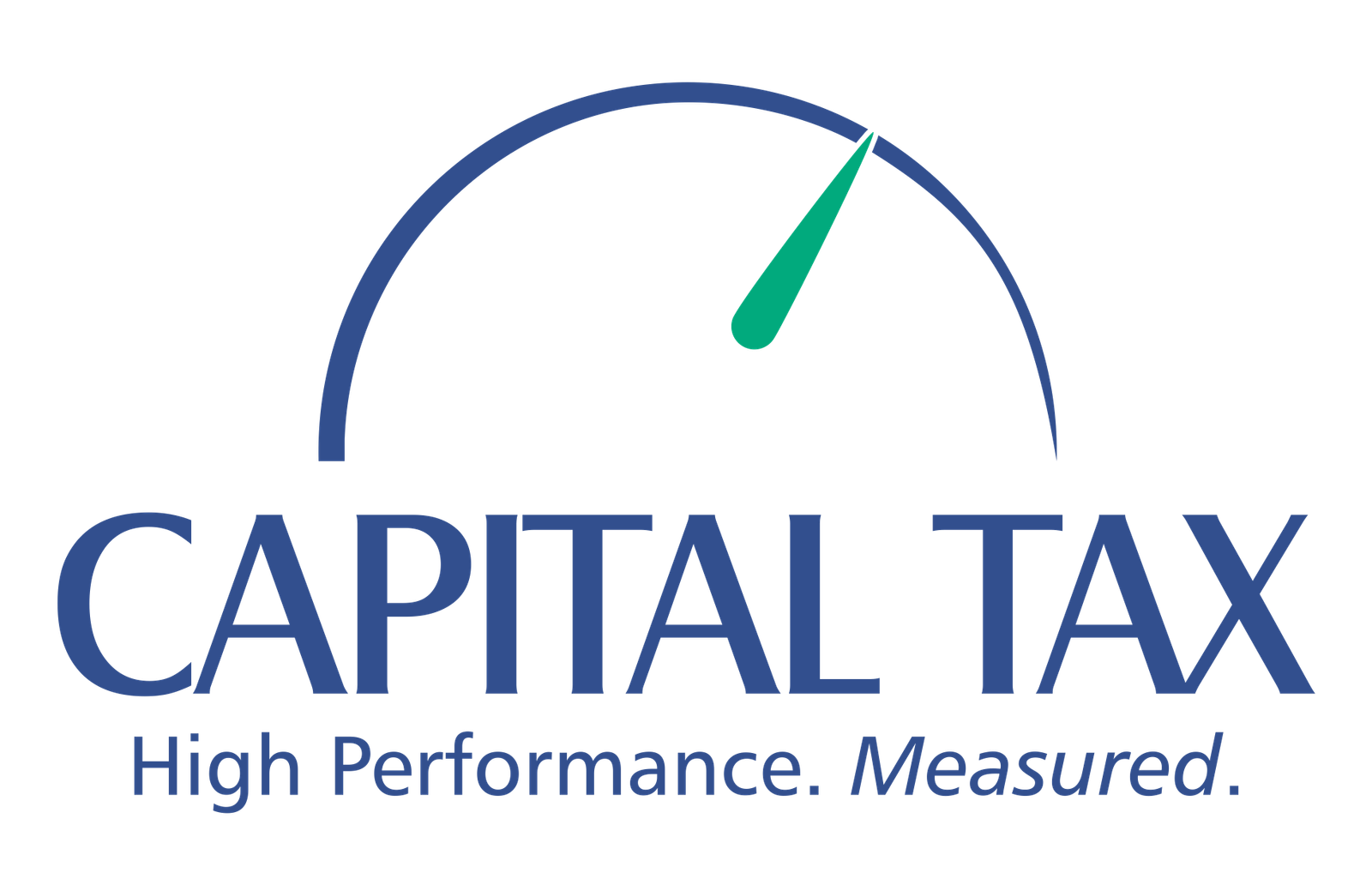Tax accounting can be daunting for small business owners, but understanding and effectively managing your tax obligations is crucial for maintaining financial health and compliance with the law. As a small business owner in California, navigating the intricacies of the state’s tax landscape can be particularly challenging due to its unique tax regulations. However, you can optimize your financial management and minimize tax liabilities by equipping yourself with essential knowledge and implementing effective tax accounting strategies.
In this article, we present ten indispensable tax accounting tips specifically tailored for small businesses in California. From recordkeeping and deductible expenses to tax credits and compliance, these tips will help you confidently navigate the tax landscape, ensuring your business remains on solid ground while maximizing tax savings. Whether you’re a sole proprietor, partnership, corporation, or LLC, these tips will empower you to make informed decisions and streamline your tax accounting process. Let’s dive into the essential tax accounting insights that every small business owner in California needs to know.
Tip #1: Maintain Accurate Records
Maintaining accurate records is a fundamental tax accounting tip that small businesses in California should prioritize. Accurate recordkeeping ensures compliance with tax regulations, provides evidence for deductions, offers financial insights, and prepares businesses for potential audits. By keeping detailed and organized records of financial transactions, businesses can substantiate their reported income and expenses, reducing the risk of penalties and disputes with tax authorities. Accurate records also enable businesses to claim eligible deductions by providing supporting documentation such as receipts, invoices, and canceled checks.
Moreover, maintaining accurate records offers valuable insights into the business’s financial health, allowing for better decision-making and financial planning. To achieve accurate recordkeeping, businesses should separate personal and business finances, utilize accounting software for streamlined management, organize receipts and invoices, regularly reconcile bank statements, and retain records for the required duration. By following this tip, small businesses can establish a solid foundation for effective tax accounting and ensure compliance with tax laws in California.
Tip #2: Separate Business And Personal Finances
Separating business and personal finances is a crucial practice that small businesses in California should adopt. By keeping these finances separate, you can ensure clarity, accuracy, and legal protection.
First and foremost, separating business and personal finances establishes a clear boundary between your personal assets and your business assets. This separation helps protect your personal wealth in case of business liabilities, lawsuits, or other legal issues. It safeguards your personal assets from being affected by any potential financial difficulties faced by your business.
Moreover, separating finances simplifies recordkeeping and bookkeeping processes. Maintaining separate bank accounts and credit cards for your business enables you to track and document business-related transactions more accurately. This makes tax accounting more efficient and reduces the risk of errors or confusion when differentiating between personal and business expenses.
In addition, separating business and personal finances ensures compliance with tax regulations. By clearly segregating financial transactions, you can easily identify and report business income and expenses during tax filings. It demonstrates your commitment to maintaining accurate financial records and can help prevent potential audits or inquiries from tax authorities.
Furthermore, separating finances allows you to maximize deductions effectively. With clear separation, you can more easily identify and substantiate business-related expenses, ensuring that you claim all eligible deductions. This can help reduce your taxable income and potentially lower your tax liability.
Tip #3: Understand Deductible Expenses
Understanding deductible expenses is essential for small businesses in California to effectively manage their tax accounting. Here’s a brief overview of why this tip is crucial:
Deductible expenses refer to the business costs that can be subtracted from your total revenue, reducing your taxable income. By identifying and properly categorizing deductible expenses, you can minimize your tax liability and maximize your tax savings. Some common deductible expenses for small businesses in California include rent, utilities, employee wages, supplies, advertising costs, and professional fees.
To understand deductible expenses effectively, familiarize yourself with the specific IRS and Franchise Tax Board (FTB) guidelines applicable to your business structure. This will ensure that you claim all eligible deductions while complying with tax regulations.
By keeping accurate records and properly documenting your expenses, you can substantiate your deductions during tax filings and minimize the risk of audits or disputes. Utilizing accounting software or consulting with a tax professional can also provide guidance on identifying and maximizing deductible expenses specific to your business.
Understanding deductible expenses empowers small businesses to make informed financial decisions, optimize tax strategies, and reduce their overall tax burden. It is crucial to stay updated on any changes to tax laws and regulations in California to ensure you take full advantage of all available deductions.
Tip #4: Take Advantage Of Tax Credits
Taking advantage of tax credits is a valuable tax accounting tip for small businesses in California. Here’s a brief overview of why tax credits are important and how they can benefit your business:
Tax credits directly reduce your tax liability dollar-for-dollar, making them highly advantageous. They serve as incentives provided by the government to encourage specific behaviors or activities. By identifying and qualifying for applicable tax credits, you can significantly reduce the amount of taxes you owe, potentially resulting in substantial savings for your business.
California offers various tax credits that small businesses can take advantage of, such as the Small Business Health Care Tax Credit and the California Competes Tax Credit. These credits can help offset costs related to healthcare expenses or incentivize job creation and expansion, respectively.
To benefit from tax credits, stay informed about the available credits and the criteria for eligibility. Research the requirements and consult with a tax professional who can guide you on identifying and maximizing your eligibility for these credits. Additionally, ensure you maintain proper documentation and follow any reporting or application procedures outlined by the tax authorities.
By actively seeking and utilizing tax credits, small businesses can significantly reduce their tax liabilities, freeing up resources to reinvest in their operations, pursue growth opportunities, or strengthen their financial position. Understanding the tax credits available to your business in California and taking advantage of them can positively impact your bottom line.
Tip #5: Maximize Retirement Contributions
Maximizing retirement contributions is a valuable tax accounting tip for small businesses in California. Here’s a brief overview of why this tip is important and how it can benefit your business:
Contributing to retirement plans allows you to save for the future while also providing immediate tax benefits. Maximizing your retirement contributions reduces your taxable income, potentially lowering your current tax liability.
California small businesses have several retirement plan options, such as Simplified Employee Pension (SEP) IRAs and Solo 401(k)s. These plans offer tax advantages, allowing you to contribute pre-tax dollars and potentially grow your retirement savings tax-free until withdrawal.
By contributing the maximum amount allowed by law to your retirement plan, you can lower your taxable income, which in turn reduces your tax liability. This not only provides immediate tax savings but also enables you to save for your retirement years.
To maximize retirement contributions, review the contribution limits set by the IRS and ensure you contribute the maximum allowable amount. Additionally, consult with a financial advisor or tax professional who can guide you on the retirement plan that best suits your business needs and goals.
Maximizing retirement contributions not only helps secure your financial future but also provides immediate tax benefits. It allows you to reduce your taxable income, lower your tax liability, and potentially grow your retirement savings tax-efficiently. By taking advantage of retirement plans available in California, small businesses can optimize their financial position and plan for a financially secure retirement.
Tip #6: Stay Informed About Tax Law Changes
Staying informed about tax law changes is a crucial tax accounting tip for small businesses in California. Here’s why it is important and how it can benefit your business:
Tax laws are subject to frequent updates and revisions, and being aware of these changes is essential to ensure compliance and make informed financial decisions. By staying informed, you can adapt your tax strategies, take advantage of new deductions or credits, and avoid penalties or missed opportunities.
Changes in tax laws can impact various aspects of your business, including deductions, credits, reporting requirements, and tax rates. By keeping up-to-date with the latest tax regulations, you can adjust your financial planning, optimize your tax liability, and effectively manage your tax obligations.
To stay informed, regularly review reliable sources such as government websites, tax publications, and newsletters. Additionally, consider consulting with a tax professional who specializes in small business taxation. They can provide expert advice, help interpret complex tax laws, and keep you informed about any changes that may affect your business.
By staying informed about tax law changes in California, small businesses can proactively adapt their tax strategies, ensure compliance, and make the most of available tax benefits. This knowledge empowers business owners to make informed financial decisions and maintain a strong financial position in an ever-evolving tax landscape.
Tip #7: Consider Hiring Independent Contractors
Considering hiring independent contractors is an important tax accounting tip for small businesses in California. Here’s a brief overview of why this tip is valuable and how it can benefit your business:
Hiring independent contractors instead of employees can offer cost-saving advantages and simplify your tax obligations. Independent contractors are not classified as employees, which means you are not responsible for payroll taxes, employee benefits, or providing workers’ compensation insurance.
By hiring independent contractors, you can potentially reduce expenses related to payroll taxes, benefits, and other employee-related costs. This can result in significant savings for your business, especially for short-term or project-based work.
However, it is essential to properly classify workers based on IRS guidelines to avoid misclassification issues. Ensure that the independent contractors you hire meet the criteria set by the IRS for self-employment status.
Tip #8: Make Timely Estimated Tax Payments
Making timely estimated tax payments is a vital tax accounting tip for small businesses in California. Here’s a brief overview of why this tip is important and how it can benefit your business:
As a small business owner, you are generally required to pay income taxes throughout the year, not just during tax filing season. Estimated tax payments help you meet your tax obligations on a quarterly basis and avoid potential penalties for underpayment.
By making timely estimated tax payments, you can better manage your cash flow and ensure that you have allocated funds to cover your tax liabilities. It also helps prevent a large tax burden at year-end, allowing for better financial planning and budgeting.
To calculate estimated tax payments accurately, consider consulting with a tax professional or using tax software to estimate your tax liability. The payments are typically based on your projected annual income and the applicable tax rates.
Remember to adhere to the quarterly payment deadlines set by the IRS and the California Franchise Tax Board (FTB). Failure to make timely estimated tax payments may result in penalties and interest charges.
By making timely estimated tax payments, small businesses in California can stay compliant with tax laws, avoid penalties, and maintain a healthy cash flow. It ensures that your tax obligations are met throughout the year, providing financial stability and minimizing year-end surprises.
Tip #9: Take Advantage Of Section 179 Expensing
Taking advantage of Section 179 expensing is a valuable tax accounting tip for small businesses in California. Here’s a brief overview of why this tip is important and how it can benefit your business:
Section 179 of the Internal Revenue Code allows small businesses to deduct the full cost of qualifying equipment or property purchased or financed during the tax year, rather than depreciating it over time. By utilizing Section 179 expensing, you can accelerate your deductions and potentially reduce your taxable income.
Taking advantage of Section 179 expensing offers several benefits. It can help you save on taxes by deducting the full cost of qualifying assets, such as machinery, vehicles, computers, or office furniture. This immediate deduction can provide substantial tax savings and positively impact your cash flow.
However, it’s crucial to understand the limitations and eligibility requirements of Section 179. There are annual deduction limits and rules regarding the types of assets that qualify for this expensing option. Consult with a tax professional or refer to IRS guidelines to ensure that your purchases meet the necessary criteria.
By taking advantage of Section 179 expensing, small businesses in California can reduce their tax liabilities, improve cash flow, and potentially invest in necessary equipment or property. It’s a valuable tool for accelerating deductions and maximizing tax savings, helping businesses thrive and grow.
Tip #10: Seek Professional Advice
Seeking professional advice is a crucial tax accounting tip for small businesses in California. Here’s a brief overview of why this tip is important and how it can benefit your business:
Navigating the complex tax landscape can be challenging for small business owners, especially with ever-changing tax laws and regulations. Seeking guidance from a qualified tax professional, such as a certified public accountant (CPA) or an enrolled agent, can provide invaluable support and expertise.
A tax professional can help you understand the specific tax obligations, deductions, and credits that apply to your business in California. They can offer personalized advice based on your unique circumstances, ensuring compliance with tax laws while maximizing your tax savings.
Additionally, a tax professional can assist with tax planning, providing strategies to optimize your financial position, minimize your tax liability, and take advantage of available tax benefits. They can also handle the preparation and filing of your tax returns, ensuring accuracy and timely submission.
Conclusion
In conclusion, understanding and implementing effective tax accounting practices are crucial for small businesses in California. The ten essential tax accounting tips discussed in this article provide a solid foundation for navigating the complex tax landscape, ensuring compliance, and optimizing financial management. From maintaining accurate records and separating business and personal finances to maximizing deductions and taking advantage of tax credits, each tip plays a vital role in managing tax obligations and minimizing tax liabilities.
Additionally, staying informed about tax law changes, making timely estimated tax payments, and seeking professional advice are key strategies for staying ahead of the curve and maximizing tax savings. By following these essential tips, small businesses in California can navigate the intricacies of tax accounting with confidence, allowing them to focus on growing their businesses and achieving long-term success.
Unlock Financial Success With Comprehensive Accounting Services For Small Businesses By Capital Tax
Are you looking for a trusted partner to handle your accounting and tax needs? Look no further! Our CPA firm offers a wide range of services, including CPA expertise, accounting solutions, tax services, small business accounting, tax planning, and tax preparation.
Take control of your financial future and let our experienced team guide you to success. Whether you’re a small business owner or an individual seeking personalized tax strategies, our dedicated professionals are here to help.
Maximize your financial potential with our services:
1. CPA Expertise: Our qualified CPAs bring their extensive knowledge and experience to provide accurate financial insights and strategic guidance tailored to your unique situation.
2. Accounting Solutions: From bookkeeping to financial statement preparation, we ensure your business stays organized, compliant, and primed for growth.
3. Tax Services: Stay ahead of changing tax laws and regulations with our comprehensive tax services. We’ll help you minimize your tax liability while ensuring full compliance.
4. Small Business Accountant: As a small business owner, you need a trusted partner who understands your challenges. Our dedicated small business accounting services offer personalized solutions to fuel your success.
5. Tax Planning: Don’t let taxes hinder your financial goals. Our expert tax planners will create customized strategies to optimize your tax efficiency and maximize savings.
6. Tax Preparation: Leave the complex task of tax preparation to us. We’ll ensure accuracy and efficiency, allowing you to focus on what you do best – running your business.
Ready to take the next step toward financial success? Contact us today to schedule a consultation with our team of professionals. Let us show you how our comprehensive CPA, accounting, and tax services can transform your financial outlook and pave the way for a prosperous future.
Disclaimer
The materials available on this website are of general nature. For specific tax strategies and questions related to your specific situation and tax context, please contact our firm directly to provide you with actionable advice.




